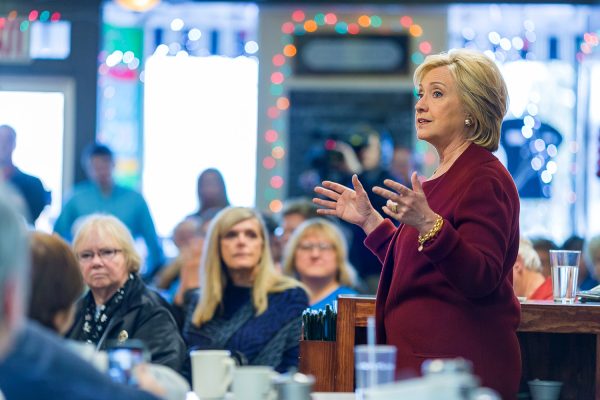
Listening to the Democratic National Convention speeches of Joe Biden, Bill Clinton, Barack Obama and his wife, Michelle, this week, I was struck by the repeated references to family, flag and motherhood.
Democrats have long been self-conscious about their love of country and their “family values” lest they be perceived as unpatriotic hedonists. But this year it all seems to come together: Democrats are the party of majority America now, which is racially diverse, increasingly relaxed about gender norms — the party just nominated the first female presidential candidate in history, after all — and less prone to jingoism than in the wake of 9/11.
Reversal
I wasn’t the only one who noticed. Jonathan Bernstein of Bloomberg View points out that the Democrats expressed their liberal values in religious language whereas Donald Trump’s acceptance speech was entirely secular.
While the Democrats constantly referred to God and religious values, the Republicans in their references to religion were specific — repealing the “Johnson amendment,” protecting bakeries from having to cater gay weddings.
This is unusual. As Matt Grossmann and David A. Hopkins, two political scientists, have argued, the Democrats tend to speak about concrete issues that appeal to their disparate constituencies (blacks, gays, women, workers) whereas Republicans emphasize conservative ideology.
I’ve written before about the possibility of a political realignment in the United States and these two conventions suggest that such a shift is underway.
When Republicans nominated a thrice-married would-be authoritarian misogynist and racist for the presidency, they surrendered their claim to be the party of “real” America.
Trump’s supporters harken back to a country that never was. Democrats are optimistic about what the rest of the twenty-first century will bring.
If there is a “shiny city on a hill,” it is in Philadelphia, where the Democrats are holding their convention; not in Cleveland, where the Republicans held theirs.
The party of security
It’s not just values; Politico reports that the parties are reversing roles on foreign policy as well.
Barack Obama, Hillary Clinton and other Democratic leaders are positioning themselves as grownups in a serious world.
Trump, by contrast, still hasn’t learned the basics of international affairs a year into this presidential campaign.
To be fair, this switch is not due to Trump alone. Democrats have become more trusted on foreign policy in recent years as a result of the last Republican administration’s many failures, especially in Iraq.
Defections
For a realignment to take place, those Republicans who aren’t sure if they can bring themselves to vote for Trump in November must defect to the Democrats.
That may not happen this year, but many run-of-the-mill Republicans are appalled by the nativism and isolationism of the former reality TV star.
They can’t discount this as an accident. Their party is increasingly white, increasingly rural and increasingly dissatisfied with changes in the economy and society. Republican voters value homogeneity and have turned inward. Trump is a crass but logical manifestation of this trend.
On the other end, Democrats have formed a coalition between upscale whites and ethnic as well as sexual minorities, many of whom live in the big coastal cities. These voters see diversity around them every day and take it for granted. They are outward-looking and more internationalist.
Whether it’s on the economy, foreign policy or values, Republicans who voted for Jeb Bush or John Kasich or Marco Rubio in the primaries really have more in common with the average centrist Democrat than they do with Donald Trump’s brigade.
Trump is remaking the Republican Party in his image. How long before non-Trump Republicans decide this isn’t their party anymore?
